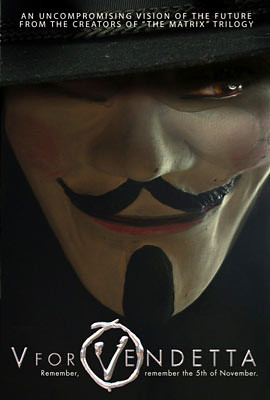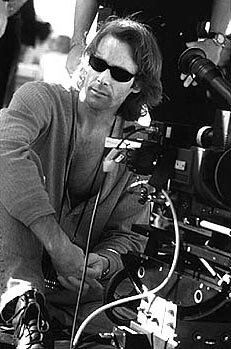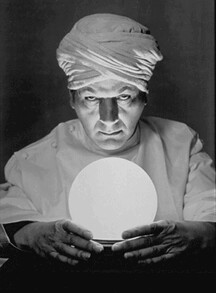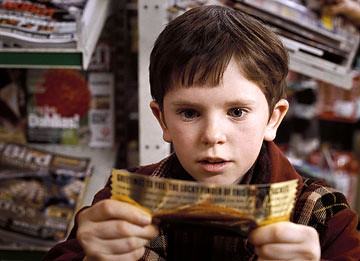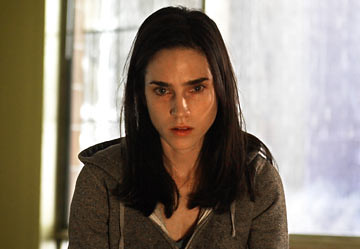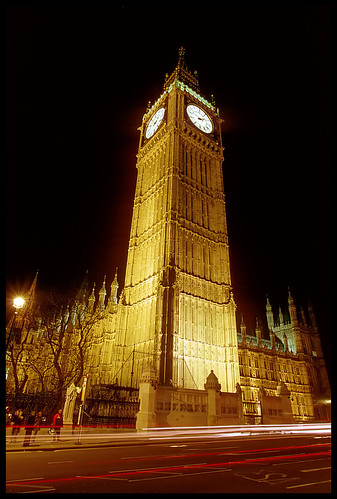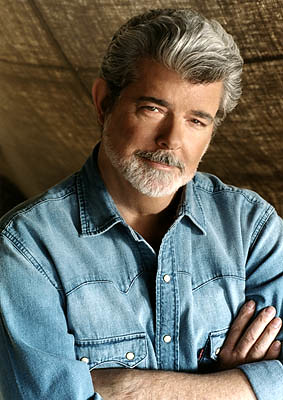Often times when I sit down in front of my trusty laptop to write these reviews I feel a bit overwhelmed, my head swimming with various ideas. Where to I begin? How do I sum up the film and try to find some valid points without just writing tepid summaries, or bland approval.
As I sit here concocting my review for Fantastic Four, I find myself not knowing where to begin….
Because this movie may rival Van Helsing for one of the worst summer movies, ever, EVER made.
Not since League of Extraordinary Gentlemen has a perfectly good comic book story concept been throttled into studio cookie cutter oblivion and turned into such boring nonsense.
There are times when one is sucked into a movie for maybe the first two thirds of the movie, and then the ending stinks. Other times when the first half hour may be somewhat engaging before the whole thing falls off a damn cliff (i.e. Dreamcatcher). But I don’t think I’ve ever known a movie was going to be painfully bad, sooner than I did with Fantastic Four. It was almost instantaneous. Even the opening credit sequence felt awkward, with some computer graphic hoo ha that started to ramp up but was then cut off abruptly to reveal the logo of the Fan four. The first scene of the film opens on two of its’ main characters. Ben Grimm played by Michael Chiklis and Reed Richards by Ioan Gruffudd. They are about to meet Victor Von Doom, in an attempt to seek funding and collaboration on a scientific study. It only took a couple moments of clunky dialogue and wooden acting to see that things were not going well.
But hey, who wants to spend time setting up the characters anyways? Let’s get down to business with the exposition of the “high-concept” plot.
Sure it’s a comic book movie, and crazy fantastical things happen. But you’d think it’d be possible for the plot elements to have a little more logic and intelligence than the story arc of an episode of Barney.
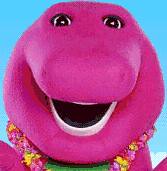
Seriously though. You know that kind of pseudo science fiction mumbo jumbo that just makes you automatically zone out because of how ridiculous and boring it sounds? There’s a lot of that in this movie. Call me a nerd here, but at least you gotta give Star Trek some credit for creating sci-fi tech talk that was consistent and arguably interesting. I found my eyes glazing over as Reed Richards pitches his idea to Dr. Von Doom. Basically Reed needs money and the use of Doom’s space station in order to conduct some experiment, which will ultimately result in the betterment of mankind. I wish it had been stated that simply but instead the film forced multiple minutes of faux sci-tech warbling on us.
All seems to be going smoothly when Von Doom agrees to Reed’s request,… but uh, oh… in walks Jessica Alba, who plays Sue Storm. Not only does she look too young for the role of an established scientist, but she scares me because her hair and her skin are almost exactly the same color – blonde. (I’ll refrain from a whole diatribe about how I think its kinda lame that she masks her Latinaness.) Director Tim Story makes it painfully obvious with reaction shots, that are as subtle as canons on the fourth of July, that Sue and Reed have some sort of a history, from years ago. Forget the fact that the two are supposed to be peers in the scientific world having been at MIT at the same time, but Gruffudd is eight years her senior… (Alba is 24, Gruffod 32)
Once the Fan 4 and Von Doom arrive at the space station which is apparently run by invisible robots, maylay ensues. Whatever event it is that Dr. Reed Richards is preparing for in order to conduct his study, without explanation suddenly happens within minutes of their arrival. BAM! This huge wave of …(insert inane pseudo science here) hits, and after a really cheaply rendered 80’s-esque FX sequence that shows the Fan Four’s physical structure being reformatted we fade to black.
From the outset Fantastic Four didn’t want to “waste” time developing its characters, lest it be diverted from diving right into the setup and plot. What is astounding about the movie however, is that the running time is just over two hours, and truly, almost nothing happens the entire time.
The setup is taken care of in the first ten minutes. A group of scientists goes on a mission and is hit up by some undefinable, inexplicable force that alters their DNA and gives them superhuman powers. Each of those who were on board, was effected in a different way, and therefore has different powers.
After they black out on the ship, we cut to this bizarre hospital/recreation center owned by Doom, where the four of them are being held under observation as they re-cooperate. Johnny, Sue, Reed and Ben begin to realize that they are not quite the same as when they left earth.
Johnny is now the “human torch”; he can light any part of his body on fire and will eventually learn that he is also capable of flying. His character up to this point has basically been established as a young whippersnapper who enjoys thrilling stunts and charming women. Played by a relatively unknown actor, Chris Evans, I would say he probably delivers the least offensive performance in the film. He plays the cocky, young jerk pretty well, and while I found him foolish and annoying at times it was more a product of the script and his lines then his actual acting. After months of watching snippets in the trailer, where he said said things like, “I need names, and shots!” and responding to a nurse when she tells him he’s hot with “Why thank you so are you”, he didn’t bug me nearly as much as I thought he would.
Poor Michael Chiklis. Or maybe I should be saying lucky Michael Chiklis. It is unclear to me if he was both Ben Grimm AND The Thing. I couldn’t tell if he was actually under that ridiculous rock costume. When Ben got hit by “the wave” he turned into an enormous rock monster with superhuman strength. Called, The Thing, he is big, and talks with a gravelly (yes pun intended) voice. Here’s the thing about The Thing. He looks absolutely, positively ridiculous!
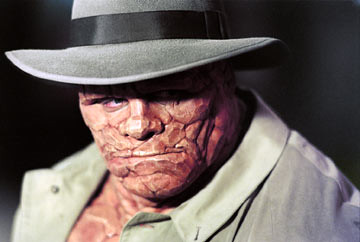
The design of this character is terrible. He looks like he’s right out of Dick Tracy, - and don’t get me wrong, I loved Dick Tracy, but that was a very stylized, specific thing they were going for, and nothing else in the production design of this movie fits with the interpretation of this character. I like Chiklis and have enjoyed his work in the past in everything from The Commish to the Shield. But this is not one of his better performances. I think if he wasn’t the one under that costume, then he lucked out because he probably spent a minimal amount of time on set. This might also explain a bit why it felt like he was phoning in the whole thing. I have a vision of him in an ADR booth, in a woozy sugar high enduced state, punching himself for agreeing to do the film.
Jessica Alba as Sue Storm discovers that she is able to become invisible. She also has some other power, which is never really explained properly in the movie, which allows her to use “forcefields” to either separate people, or isolate other force-fields, and even throw people against the wall. It was all pretty unclear and sort of lame. Female superheroes never seem to luck out on the really cool powers the way the men do. While I want to rant and rave about how terrible Alba was as Sue Storm, I feel unfair doing so, because the script really gave her nothing to work with. Her role and character were just written and fleshed out so awfully, it was easy to dislike her. She was written as this figure of responsible humorless level headed middle management. By nature of the fact that she’s attractive, she tries to add a little sultriness to the role, but I don’t think it really worked. She came off flat, and without much screen presence or charisma. But to her benefit her character was awful. She was always mad at someone, kind of cold, and boooring.
Ioan Gruffudd, who plays Reed Richards, AKA Mr. Fantastic is well….wow. I really felt bad for the guy; there were times in the movie where I got the impression that maybe he was giving it his all. This made me sad, because he was not very good. At all. I don’t know what it was, the makeup, the hair, the directing, but this was not the same handsome burly young man who played Lancelot in last summer’s King Arthur. He looked tired, and old for his age. While Gruffudd was probably just trying to convey this as part of his character’s M.O., he himself as an actor, did not seem comfortable in his own skin. I realize the character of Reed Richards in the film is supposed to be dorky, and overly analytical, unable to properly deal with his emotions, but….
Let’s just say, I wasn’t buying it.
A lot of my problems with this movie had to do with the screenplay. I don’t understand what happened. One of the guys who wrote this, Mark Frost, was a staff writer on Twin Peaks back in the day. The other, Michael France, wrote The Hulk and Goldeneye, both of which are far better than this. (I know, I know everyone hated The Hulk except for me…)
Here’s the thing. Once the Fan 4 realize they have these powers going on, there’s a really big action set piece on the Brooklyn bridge which makes little to no sense.
The Thing is perched on the edge wallowing in sorrow because the night before his fiancé did not take the news that he had turned into a giant rock, very well. As he sits there, another man appears, ready to take his life. The Thing tries to dissuade him, and like any decent law abiding American would do if a giant rock man started speaking to them, freaked out. The man dashes onto the highway, and as The Thing tries to save him, he just keeps making more and more of a mess. Cars swerve to avoid him and crash, and when a big Mac truck comes barreling his way, he stops it but causes further collisions. Tons of cars are all crashed into each other, with people injured, etc. In what turns out to be a complete “coincidence”, the rest of the Fan 4 happen to be in a cab on the bridge just as all of this is happening. When an FDNY truck comes along to try and help, it swerves and ends up hanging off the side of the bridge about to fall into the east river. The Thing and Mr. Fantastic come to the rescue saving the fireman. Suddenly the “Fantastic Four” are the toast of New York.
Huh?
One minute the cops have guns pointed at The Thing, as they see him ripping doors off trucks. The next minute crowds are swarming them with signs saying that they love the Fantastic Four. Forget the fact that everyone is cheering for the Fan 4 because they diverted a disaster that they essentially (albeit inadvertently) created. And if it wasn’t bad enough, as the New Yorkers crowd around the Fan Four in shock and awe at their “magical powers” Ben Grimm/The Thing’s fiancé, appears out of nowhere on the scene. How she happened to be on the bridge at the same time, who knows. With an angry look on her face as if she’s been betrayed, she tosses down her engagement ring onto the pavement.
In what I presume was meant to be an emotional scene, Reed/Mr. Fantastic comes up to Ben/Thing and promises him he won’t rest until he has helped them all turn back “to normal”.
For the rest of the movie, Reed works on finding a “cure” for the 4, while Von Doom realizes that his DNA has been altered as well and takes his thirst for all consuming power to the next level.
I thought Von Doom AKA Dr. Doom was a pretty weak character and villain. Even in Spiderman 1, the Green Goblin (who I thought was kind of goofy, mostly due to his mask) had some characterization. As a man, Norman Osborn was not a blindly evil; he was perhaps a bit too arrogant and wreckless, which led to his ultimate downfall. But his emotional capacity was demonstrated by his relationship with both his own son and Peter Parker. Before he became Doc Ock, Dr. Otto Octavius was a man with feelings and dreams, who loved his wife and work equally. Victor Von Doom, however, is a complete caricature, and Julian McMahon doesn’t even try to make it interesting by taking advantage of the one sided role and hamming it up a bit. It wasn’t like Cillian Murphey playing Scarecrow in Batman Begins, who took his villain persona and ran with it – I really felt like he was enjoying himself the whole time, and that made me enjoy watching him. McMahon plays it as sort of apathetic lackadaisical jerk, who has no real emotion or personal stakes throughout the entire course of the film. Supposedly he was romantically embroiled with Sue Storm for two years before the movie begins, but his behavior and attitude does not indicate this with even a modicum of sincerity. The only thing he seems to be concerned with is eliminating the Fantastic Four, because they are the only ones on earth who could stop him from assuming absolute power. And it is absolute power in the most abstract sense of the phrase. We learn that because of the debacle at his space station Doom’s financial backers are pulling out. Sure he’s angry about that and enacts revenge on one of his financiers, but he doesn’t seem particularly interested in destroying New York City, or hurting people, or taking over the world, the way most comic book villains are prone to do. Which is part of what makes the film’s insistent pushing of the Fantastic Four’s popularity completely inane and ridiculous. Nobody knows who Dr. Doom is, until the very end where there is a huge final confrontation between the Fan 4 and himself. And even then Doom’s devices are very specifically targeted at the Fan 4 themselves, he’s not the bloodthirsty type who murders loads of civilians along the way.
After a bombastic first act and a boring second, the third act picks right up with more insane gobbledygook. Doom decides the way to eliminate Reed/Mr. Fantastic is to get Ben/The Thing out of the way first. Doom convinces Ben into getting into the unfinished prototype of the machine that Reed has created in order to return the Fan 4’s molecular structure back to normal. With his newly honed electro-magnetic powers, Doom surges the power of the machine to successfully turn The Thing back into good old Ben. Doom then kidnaps Mr. Fantastic. When Ben realizes what Doom’s plan is, he gets back into the machine and CHANGES BACK into The Thing. Now there may very well be a well known issue of the comic where this occurs, I don’t know because I never read Fan 4 rampantly. The bottom line is, even if it is faithful to some original work, the film doesn’t not justify or sell Ben’s choice to change back. Yes, we get that he is concerned for his friend Reed, but surely there must have been another way for him to attempt to save him. Also they made him out to be so utterly miserable as The Thing, for him to go back to that form was a huge sacrifice of self. Now maybe I could have believed this if I thought Ben was undoubtedly loyal to Reed. But only a few scenes earlier, we saw Doom talking to Ben/Thing convincing him that Reed didn’t really care about finding him a cure – and was more concerned about romancing Sue. This was how he convinced Ben to get into the prototype. If Ben/Thing could be so easily swayed about Reed’s intentions, by Doom, a man who was a known ahole, and whom he wasn’t that close with, how can I believe he would make the ultimate sacrifice for him?
A couple other things. The movie ends with a party that New York has thrown in the Fan 4’s honor, that has a huge banner saying “Thank You Fantastic Four!” ----but thank you for what?!!? All they did was protect themselves, the city was never really endanger from any master plot that Dr. Doom was creating. With the exception of JStorm’s bizarre stunts at a motor bike show, the Fan 4 really only made two public appearances during the ENTIRE film. At the beginning on the Brooklyn Bridge where they created havoc, and then at the end, when they destroyed Doom to protect themselves. What kind of beloved heroes are these? Also, while at the party, Ben as The Thing, appears to have a new main squeeze. A young attractive blind woman, who he ran into very briefly at a bar earlier in the film. Am I to believe that he is really going to be romantically involved with a woman? Despite the fact he can not even hold a glass without crushing it in his hands? If the film had any guts it would play up on the fact that he had made such a strong sacrifice for Reed, and part of that was his ability to ever be with a woman again.
I could really go on and on about this movie. There are so many little inconsistencies, and lack of attention to detail that got on my nerves. I know a lot of people might turn to me and just say, “Relax, it was a summer movie – just enjoy it for what it is.” But I can’t. I’m plenty forgiving to a movie, if I felt like there was a really great premise behind it, or a passionate director; great acting, or a general sense of joyous fun. The problem with this movie, is that I didn’t feel like anyone who made it or was in it, with maybe the exception of Chris Evans as Jstorm, was having any fun, or really gave a damn about it. The actors came across as if they were doing another generic job just for the paycheck, and I got the impression that’s how a lot of the people behind the scenes felt about it too. It was a sloppy, uninspired, unoriginal, incoherent, and slapdash production that was painful to watch. It wasn’t even something fun like The Day After Tomorrow, which I enjoyed because it was cheesy, but at least had some neat FX, and just felt like there was more effort behind it. Fan 4 was just irredeemably unwatchable.
I’m going to see Dark Water tonight, please God let it be better….





